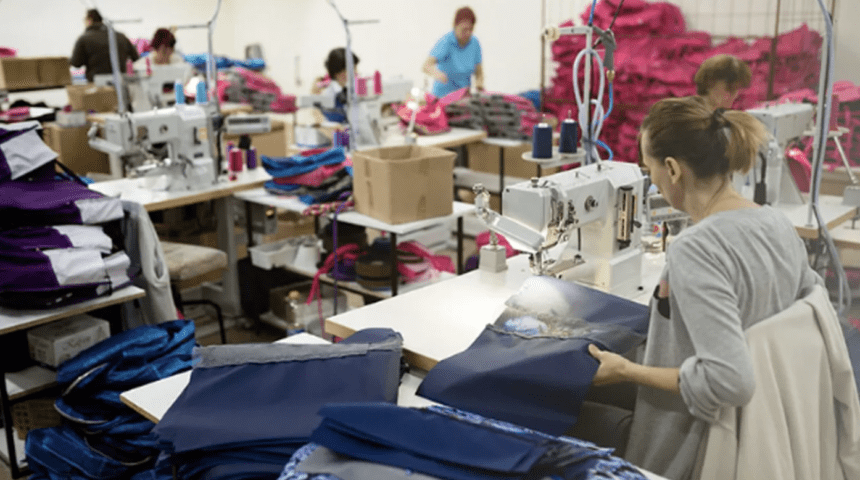Firms that reduce employment due to cost pressures will complete the “downsizing” process in the first half of this month and switch to a “wait-and-see” position until the elections next year. Depending on the TRY policy to be implemented in the post-election period, they will end or continue this downsizing process.
Enterprises, which will enter the new year with weak working capital and low demand, are downsizing their operations as a precaution against possible cost increases. Many companies accelerated layoffs, especially taking into account the cost increase caused by the expected 40-50 percent increase in the minimum wage as of January. This trend was also reflected in ISO Turkey Manufacturing PMI. Accordingly, November data indicated that employment in the Turkish manufacturing sector contracted on a monthly basis for the second consecutive month. While the decline was recorded at the highest level in more than a year, survey participants stated that the decline in employment was due to insufficient workload, resignations and retirements.
According to the information obtained by EKONOMI daily from real sector representatives, businesses in labor-intensive sectors, which went into downsizing operations in October and November, took a wait-and-see position until the local elections on March 31. Real sector representatives say that in 2024 either they will continue to downsize or will finalize it.
“Companies will focus on efficiency”
Ahmet Oksuz, President of the Istanbul Textile and Raw Materials Exporters’ Association, said that they are going through a difficult period in which costs have increased a lot in labor-intensive sectors while they cannot find employees to work on the one hand. Pointing out that a significant increase in the minimum wage is expected at the beginning of the year, which will increase the problems in the textile and ready-to-wear sectors, Oksuz said, “I do not expect an increase in employment in our sector in 2024. There will even be some decrease. Companies have projects such as downsizing, being more efficient, trying to do the same job with fewer employees. In other words, companies will focus on efficiency.”
“We are too expensive to compete in export markets”
Drawing attention to the increase in the foreign currency equivalents of the costs, Oksuz said, “In order to compete in export markets, the foreign currency equivalent of the salary you pay is important and we have been very expensive in this sense. However, while there is a perception of ‘valuable TRY’ in the business world, there is no such perception in the administrators. There is still the idea that the TRY is worthless. When we say ‘TRY is valuable’, we say it by looking at the foreign currency equivalent of domestic costs. We need to solve this problem first.”
“As long as the TL is valuable, the contraction will continue”
TOBB Ready-to-Wear and Apparel Industry Assembly President Seref Fayat stated that almost all the market players started layoffs as of October in order not to be burdened by the new minimum wage cost and said, “A 40-50 percent increase is expected. Those who could not foresee the future downsized in this process and entered a wait-and-see position.” Pointing out that the ready-to-wear sector is focused on the elections on March 31, Fayat said, “Everyone is eagerly waiting to see what the exchange rate policy will be after the elections. Because it is known that the exchange rate will be controlled until the election. After March 31st, we will see whether there will be a devaluation like after the May elections or whether the exchange rate will continue to increase in a controlled manner. If the appreciation in TRY will continue, this indicates that the contraction in the ready-to-wear sector will also continue.” Reminding that there was a long period of valuable TRY between 2003 and 2012, Fayat stated that if a similar period of ‘valuable TL’ is entered, there are many sector players who will leave labor-intensive jobs.
“The exchange rate has cut us off from the world”
Berke Icten, President of the Turkish Footwear Manufacturers Association (TASD), drew attention to the contraction in the sector and stated that employment losses reached 50 percent. Icten emphasized that companies that have reduced their capacities are trying to retain qualified staff, but if demand does not increase, these staffs are likely to be discarded as well. Layoffs accelerated in recent months to avoid the minimum wage increase burden, Icten says and even a few factories declared concordat. “The exchange rate moving away from the competitive structure has cut us off from the world,” İçten said, adding, “Labor cost is very important in competing with the world. Our price difference with our Far Eastern competitors has exceeded 10 dollars. In the past, when there was a difference of 3-4 dollars, Turkish shoes were preferred because of their quality, but when the difference widened, the quality difference does not bring business. Therefore, according to Icten, the exchange rate should become competitive as soon as possible, otherwise labor-intensive sectors like us should be forgotten.
Industrialists are cautious
Murat Akyuz, who operates in the plastics sector and was former President of Istanbul Chemicals and Chemical Products Exporters İKMİB, said that due to the minimum wage increase, which is expected to be high, there has been a negative process in which companies that do not want to enter the new year with a high increase in wages have made layoffs. Noting that the companies that dismissed workers were in an approach such as “I will hire again if necessary”, Akyüz said, “Business is weak, and the suppressed exchange rate puts especially exporter businesses in trouble. We have started to lose many jobs to Far Eastern competitors. When all these overlap and combine with the election atmosphere, a negative situation emerges. For this reason, industrialists are also abstaining and acting cautiously. There is talk that this will continue until March. This is a precaution… After overcoming the election stress, expectations may start to normalize.”
Rising costs cannot be met with current demand
İlker Onel, President of the Istanbul Merchants Club, stated that the expectations that domestic demand will fall further and interest rates will tighten have pushed the real sector to be cautious, and that there have been employment reductions in the service sectors. Stating that a minimum wage increase of 40-50 percent is expected, Onel said, “It is clear that the costs incurred cannot be met with the current demand. Therefore, companies will reduce employment as the last option. There is already an increase in the number of companies closing down, which shows that the downward acceleration in employment will continue.” Pointing out that October and November were realized well below expectations due to the increase in financing costs, increase in operational costs and increases in raw material prices, Onel said, “There are decreases of up to 40 percent in sales volumes. On a seasonal basis, these are the lowest levels of the last 10 years. There were such periods in the past, but one instrument was always good. Either interest rates were low, the exchange rate was good or the domestic market was active. Currently, none of the instruments are good.” Drawing attention to the increases in operation costs, Onel said, “Even the costs of machine equipment repairs have increased significantly. There is talk of 100-150 percent increases in workplace rents. When we look at all these, we may experience a period in which the appetite for doing business is not much, and those who have money will stay in deposits for a while in the first 6 months of 2024.”
Restaurants lost 20% of customers in 2 months
The food and beverage sector is one of the sectors directly affected by both the increase in labor costs and the declining purchasing power. Kaya Demirer, President of the Tourism Restaurant Investors and Gastronomy Enterprises Association (TURYİD), stated that the number of guests in the sector has decreased by around 20 percent and that there are also problems in the supply of personnel. Stating that the sector is still working with a shortage of staff and therefore savings in staff are not on the agenda, Demirer pointed out that the biggest problem of the sector is the decline in purchasing power. Companies were able to reflect the increasing costs to customers with a one month delay Demirer said and therefore suffered losses. Demirer expects the recovery in the food and beverage sector will no longer continue. The sector which shrank by 20 percent in the pandemic had gradually recovered until August 2023. “This trend will no longer continue. New entrepreneurs will be the ones who will suffer the most here. New generation investors who are not used to the dynamics of the sector and the inflationary environment will have a hard time. Chain businesses will of course put the brakes on new branch openings and will go to close some inefficient locations” Demirer said.










